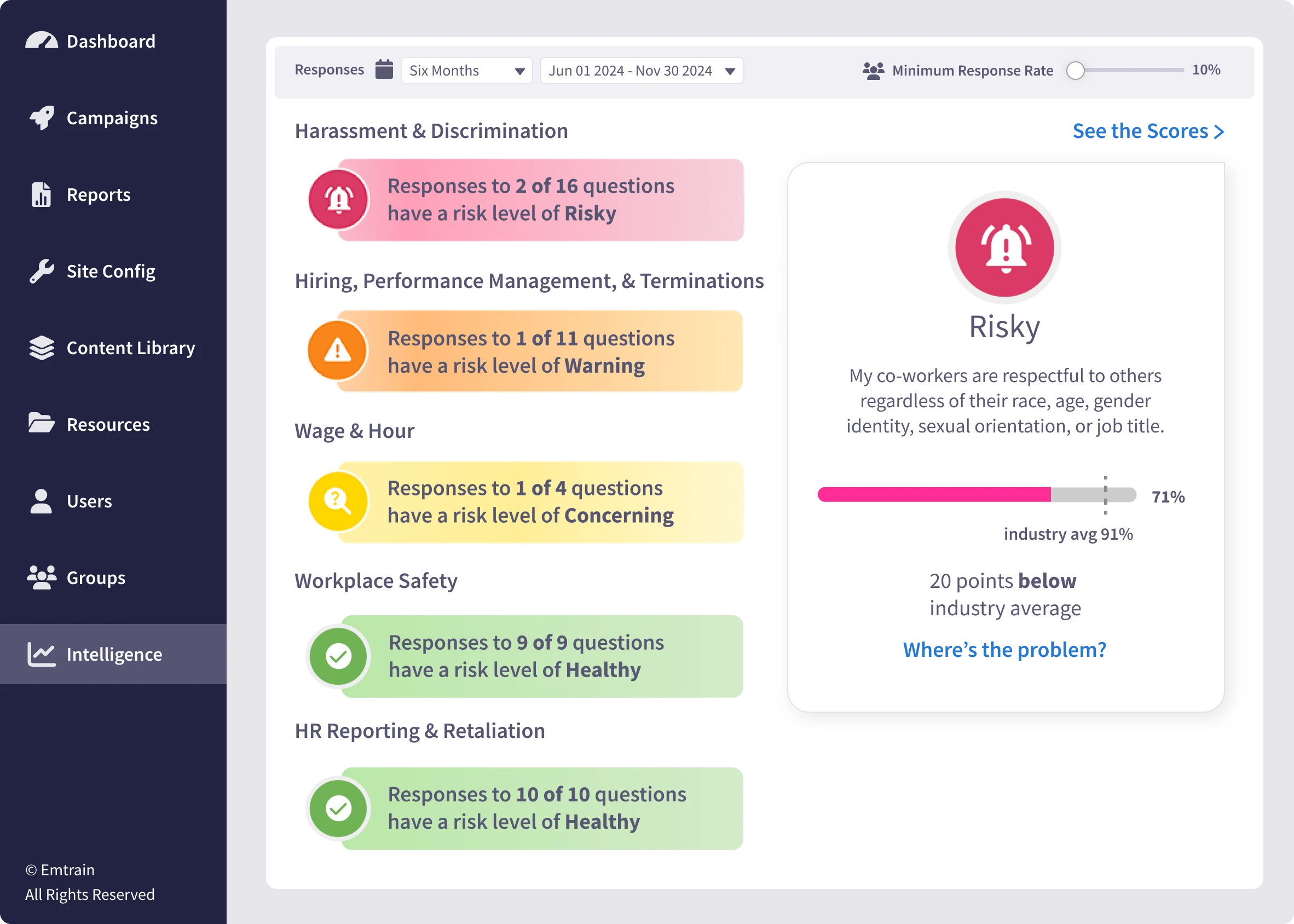Home » Concepts » Discrimination & Harassment » Anti-discrimination » Page 2
Anti-discrimination laws and policies are designed to protect individuals from unfair treatment based on characteristics such as race, gender, religion, age, disability, sexual orientation, and other protected attributes. These laws ensure equal access to employment, education, housing, and services, and help foster respectful and inclusive environments.
Emtrain’s harassment training course is engaging, interactive, and designed to spot and reduce EEO risk.

Anti-discrimination protections in the United States gained momentum during the civil rights movement, leading to landmark legislation such as the Civil Rights Act of 1964, which prohibited discrimination in employment, education, and public accommodations. Subsequent laws expanded protections to cover additional characteristics, including age, disability, and genetic information, reflecting evolving societal standards around equality and fairness.
Anti-discrimination laws at the federal, state, and local levels prohibit employers and others from treating individuals unfairly based on protected characteristics.
Key federal laws include:
States and cities often provide additional protections that may go beyond federal requirements (e.g., covering sexual orientation, gender identity, marital status, etc.).
Anti-discrimination requirements can vary by jurisdiction. To help organizations navigate this complexity, We provides an up-to-date guide on state-specific workplace harassment and discrimination laws: Harassment Requirements by State
Individuals who believe they have experienced workplace discrimination can file a complaint, called a “charge of discrimination,” with the U.S. Equal Employment Opportunity Commission (EEOC).
Download our full guide to Discrimination Investigations with all the details.
Emtrain delivers training, resources, and tools to help organizations understand and meet their anti-discrimination obligations, foster an inclusive workplace culture, and handle complaints appropriately.
Relevant microlessons that help employees recognize and interrupt discrimination include:
Example video scenarios that illustrate workplace discrimination issues:
Courses:
Blogs and Guides:
Templates and Checklists: